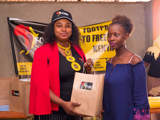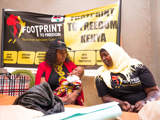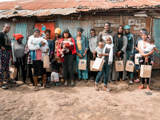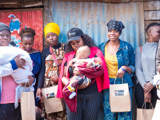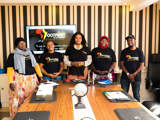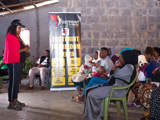Community outreach in Kenya
We understand the need to raise awareness about the different forms of human trafficking, how traffickers control victims, the routes the victims are taken, and most importantly, what people at risk can do to avoid being trafficked. Traffickers often promise a good job, education, or relationship, only to exploit innocent victims once they reach the intended destination. Our grassroots outreach focuses on building capacity and raising awareness among those whom traffickers target.
Prevention
Our prevention activities include speaking to children, teachers, youth, parents, police officers, Members of Parliament, and others working in partnership to bring visible change through rights-based initiatives. As emphasis is placed on preventing women and children from falling prey to human trafficking, we visit communities, schools, and churches.
Primary activities include prevention, empowerment, and partnership:
- We raise awareness in schools and among street children
- We create alternative livelihood opportunities for women and girls who are most likely to migrate, just as we do for returning victims.
- We create focus groups (survivor-led) and set up and address community-based savings and lending mechanisms.
- We train women - who are considering migrating to the Middle East - about safe migration. We empower them with information about their human rights and legal options.
- We train and prepare survivors of human trafficking to carry out proactive interventions on the ground to prevent people from re-entering situations of exploitation and trafficking in human beings.

